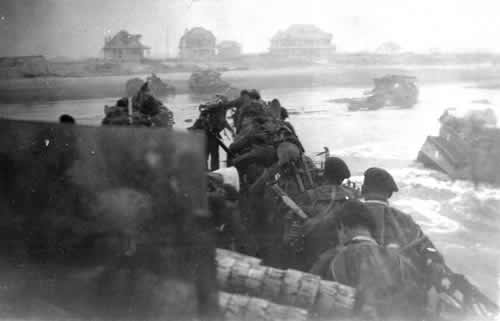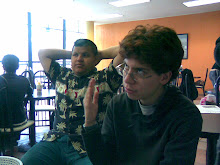
Today has not been the best day of all. And I remember, although many people do not, the 6th of June of 1944. As I have previously stated the war changed my life. Not in the way of fighting which is actually ridiculous in my country but rather seeing fiction and specially reading the deeds of people in it. The deeds are occasional, ekphrastic moments of varied arrays. The best one I can remember now is "Ode to a Grecian Urn" and "The Shield of Achilles". Although these are among my favorite poems I think this view of moments is exhausted. The real poetry that changed my way of viewing war was Wilfred Owen's. It is a shock, an impulse, the terrified glance towards the apocalyptic visions of Eliot in The Waste Land. And although WWI seems far distant in any sense to WWII it is the "lilacs than breed" the same feeling as in "Dulce et Decorum Est". Everything fails, as Robbie Turner in Atonement, to produce something out of the "dead land".

And the discourse of Rupert Brooke (i.e. "The Soldier") is exhausted. That is why I still read Owen's poetry nearly 100 years after its creation. That is why I read war historians. That is why as Stephen Spender "I Think Continually Of Those Who Were Great". That is why I remember the men and woman who sacrificed themselves that dreadful but hopeful day of June. That is why "a terrible beauty is born".
A thought for the every man that died that day, on each nationality.

"Dulce Et Decorum Est"
Bent double, like old beggars under sacks,
Knock-kneed, coughing like hags, we cursed through sludge,
Till on the haunting flares we turned our backs
And towards our distant rest began to trudge.
Men marched asleep. Many had lost their boots
But limped on, blood-shod. All went lame; all blind;
Drunk with fatigue; deaf even to the hoots
Of tired, outstripped Five-Nines that dropped behind.
Gas! GAS! Quick, boys! – An ecstasy of fumbling,
Fitting the clumsy helmets just in time;
But someone still was yelling out and stumbling,
And flound'ring like a man in fire or lime . . .
Dim, through the misty panes and thick green light,
As under a green sea, I saw him drowning.
In all my dreams, before my helpless sight,
He plunges at me, guttering, choking, drowning.
If in some smothering dreams you too could pace
Behind the wagon that we flung him in,
And watch the white eyes writhing in his face,
His hanging face, like a devil's sick of sin;
If you could hear, at every jolt, the blood
Come gargling from the froth-corrupted lungs,
Obscene as cancer, bitter as the cud
Of vile, incurable sores on innocent tongues,
My friend, you would not tell with such high zest
To children ardent for some desperate glory,
The old Lie; Dulce et Decorum est
Pro patria mori.




No comments:
Post a Comment